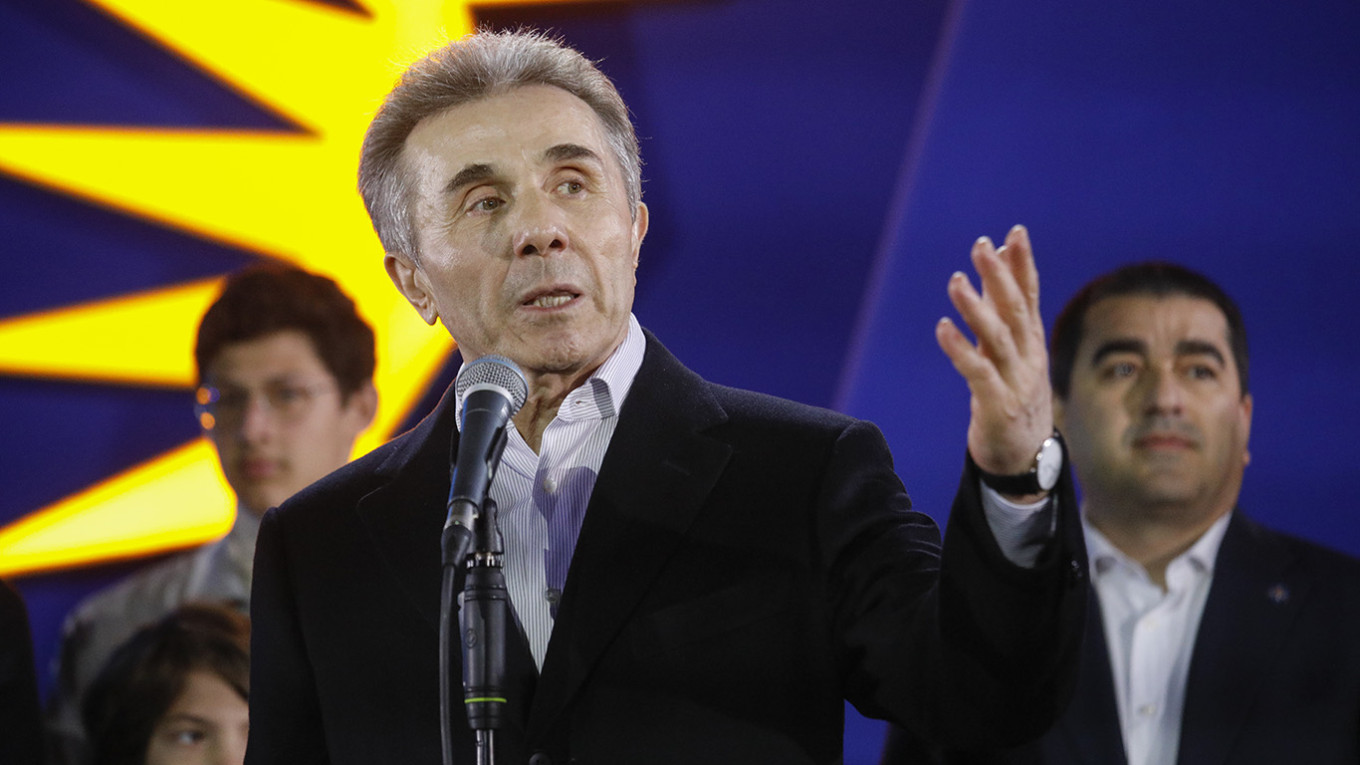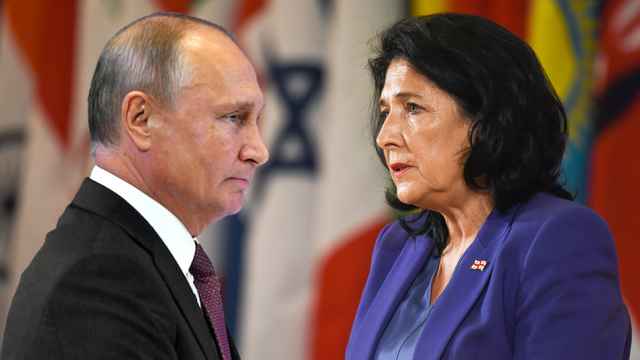Georgia’s ruling and opposition parties have ruled out restoring diplomatic relations with Russia unless Moscow returns the breakaway regions of Abkhazia and South Ossetia, the business newspaper Kommersant reported Monday, citing senior officials in the South Caucasus country.
Russia is one of the few countries to recognize the two regions as independent states following its five-day war with Georgia in 2008. The Kremlin has since provided military, political and economic support to the separatist territories, which make up roughly 20% of Georgia’s internationally recognized territory.
On Sunday, Russian Deputy Foreign Minister Mikhail Galuzin said Moscow was open to restoring relations if Georgia drops its claims to Abkhazia and South Ossetia.
“We regret that the Georgian leadership continues to link the restoration of diplomatic relations with our position on Abkhazia and South Ossetia,” Galuzin told the pro-Kremlin Izvestia newspaper. “[This policy] is not subject to revision.”
Diplomatic ties between Moscow and Tbilisi have been severed since the 2008 war, though critics have accused the ruling Georgian Dream party of quietly warming relations with the Kremlin.
That perception deepened after the party introduced controversial “foreign influence” legislation, prompting the EU to suspend Georgia’s accession bid and the U.S. to impose sanctions on dozens of Georgian officials.
Kremlin spokesman Dmitry Peskov echoed Galuzin’s remarks on Monday and said Russia remains ready to resume relations, though he added there was no timeline.
Georgian Parliament Speaker Shalva Papuashvili said a full restoration of diplomatic ties would not be possible until the territorial dispute is resolved.
“There’s only one barrier to the restoration of Russian-Georgian relations — Russia’s occupation of Georgian territories,” Kommersant quoted him as saying.
Opposition lawmaker Khatia Dekanoidze backed that stance but accused Georgian Dream of hesitating only due to fears of public backlash.
“They don’t dare [restore ties with Russia], fearing the anger of the Georgian people,” she said.
A Message from The Moscow Times:
Dear readers,
We are facing unprecedented challenges. Russia's Prosecutor General's Office has designated The Moscow Times as an "undesirable" organization, criminalizing our work and putting our staff at risk of prosecution. This follows our earlier unjust labeling as a "foreign agent."
These actions are direct attempts to silence independent journalism in Russia. The authorities claim our work "discredits the decisions of the Russian leadership." We see things differently: we strive to provide accurate, unbiased reporting on Russia.
We, the journalists of The Moscow Times, refuse to be silenced. But to continue our work, we need your help.
Your support, no matter how small, makes a world of difference. If you can, please support us monthly starting from just $2. It's quick to set up, and every contribution makes a significant impact.
By supporting The Moscow Times, you're defending open, independent journalism in the face of repression. Thank you for standing with us.
Remind me later.






